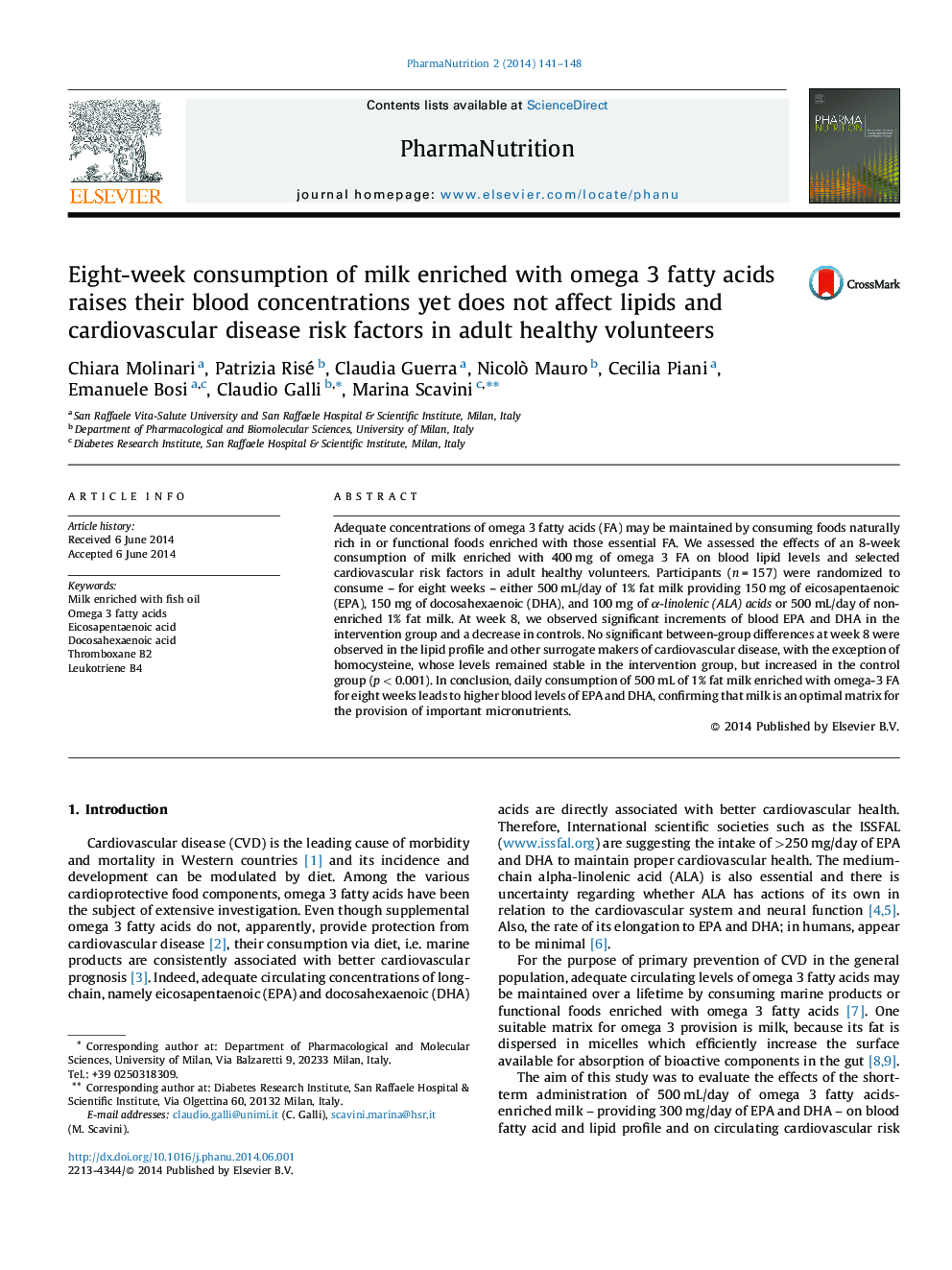| کد مقاله | کد نشریه | سال انتشار | مقاله انگلیسی | نسخه تمام متن |
|---|---|---|---|---|
| 2564424 | 1127974 | 2014 | 8 صفحه PDF | دانلود رایگان |
• Among food components, omega 3 fatty acids have been the subject of extensive investigation.
• Supplemental omega 3 fatty acids do not provide protection from cardiovascular disease.
• Omega 3 consumption via diet is associated with better cardiovascular prognosis.
• We assessed the effects of milk enriched with 400 mg of omega 3 fatty acids on blood fatty acid levels and lipids and cardiovascular risk in adult healthy volunteers.
• Daily consumption of 500 mL of milk supplemented with medium- and long-chain omega 3 PUFA (600 mg/L) increases plasma concentrations of EPA and DHA; this regimen does not affect total, HDL, and LDL cholesterol; triglycerides; white blood cell counts; fibrinogen; LTB4 and TxB2.
• Functional milk is a feasible approach to supplement omega 3 to the general population and maintain their appropriate circulating concentrations.
Adequate concentrations of omega 3 fatty acids (FA) may be maintained by consuming foods naturally rich in or functional foods enriched with those essential FA. We assessed the effects of an 8-week consumption of milk enriched with 400 mg of omega 3 FA on blood lipid levels and selected cardiovascular risk factors in adult healthy volunteers. Participants (n = 157) were randomized to consume – for eight weeks – either 500 mL/day of 1% fat milk providing 150 mg of eicosapentaenoic (EPA), 150 mg of docosahexaenoic (DHA), and 100 mg of α-linolenic (ALA) acids or 500 mL/day of non-enriched 1% fat milk. At week 8, we observed significant increments of blood EPA and DHA in the intervention group and a decrease in controls. No significant between-group differences at week 8 were observed in the lipid profile and other surrogate makers of cardiovascular disease, with the exception of homocysteine, whose levels remained stable in the intervention group, but increased in the control group (p < 0.001). In conclusion, daily consumption of 500 mL of 1% fat milk enriched with omega-3 FA for eight weeks leads to higher blood levels of EPA and DHA, confirming that milk is an optimal matrix for the provision of important micronutrients.
Figure optionsDownload as PowerPoint slide
Journal: PharmaNutrition - Volume 2, Issue 4, October 2014, Pages 141–148
